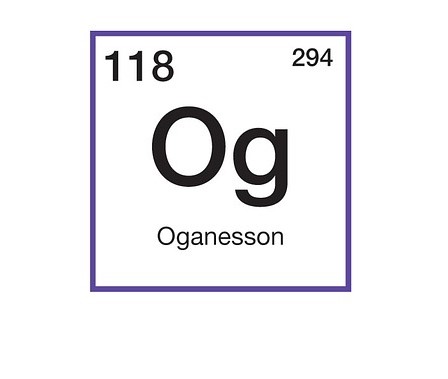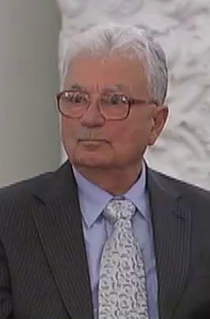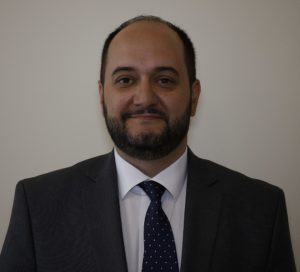 The title is a bit confusing, but it reflects the coincidence of two very different matters I hope to convey.
The title is a bit confusing, but it reflects the coincidence of two very different matters I hope to convey.
The first is the press conference organized by the Armenian Engineers and Scientists of America hosting Yuri Tsolakovich Oganessian, after whom element number 118, Oganesson, is named. I was very impressed by his comportment – very modest, energetic and well spoken (in translation from Russian to English, along with Armenian and English). I am very grateful that AESA’s president informed me about this press conference.
Unfortunately, I missed the first part of the program where the scientific aspects were discussed. Briefly, Yuri Oganessian has been involved in the discovery of the six heaviest elements known so far. An earlier technique he developed helped others discover ten other elements, atomic numbers 104 to 113. But that’s not all.
Before going on, allow me to explain what these elements are for those not immersed in chemistry. You will recall the periodic table is a way of presenting all the elements (from hydrogen to iron to uranium and all the others) that mix or combine in different ways to form everything around us, including us. That table is organized in such a way that the elements in the same column act similarly, while those in the same row have the same basic core size. It has worked very well to help explain what chemists and physicists observe about the elements.

So far, 118 elements have been observed. Only the first 92 occur naturally. The remainder are all man made and usually have extremely short lives lasting tiny fractions of a second before breaking apart. These are the ones that Oganessian played an important role in their discovery. Oganessian will be among the giants of science that kids of the future will learn about.
But the element Oganesson is NOT behaving the way it would have been expected to, based on its location in the periodic table. At an upcoming conference in France, Oganessian will be proposing the notion that the periodic table’s time has come. It has served us well since it was developed by Dmitri Mendeleev in 1869. But given the recent findings, the periodicity undergirding the table seems to no longer apply, according to Oganessian.
More projects are brewing with U.S. scientists working in cooperation with Oganessian’s efforts. Of course these studies and experiments are far from cheap, sometimes involving weeks and weeks of high energy acceleration of subatomic particles in the very few particle accelerators that exist in the world.

I wish this had been all that went on at the press conference. But Armenia’s new Education and Science Minister, Arayik Harutyunyan, was also on the panel, and by the time I arrived, political questions were being asked. Offers of assistance on the teaching and other fronts came from the audience. It was all very constructive, positive and heartening. I ended up speaking to Harutyunyian afterwards (the same happened with Oganessian) since I did not get a turn to ask my questions before the press conference was closed.
Meanwhile, Harutyunyian’s totally avoidable use of Euro-Russian words while speaking Armenian led me to blurt out that cleaning up that vile practice should also be part of his agenda. Afterwards, I asked him what “profeelayeen nkhrarootiunner” (note the word “profile” before the word for minister in Armenian). I had no idea what that meant. It turns out it just refers to a government’s various ministries.
Then, I proceeded to raise my two questions. I asked about the use of foreign words when Armenian versions already exist. He responded that a language is a “living thing” (true enough) and that it evolves. But why should that evolution be foreign-based rather than homegrown? Words we use are based on our own choices. It’s one thing to argue that words such as “laser” (originally an acronym) or “Kleenex” a product name that has become a common noun) are acceptable. But ones like “feeksvadz” (i.e. fixed) in the sense of determined or decided instead of “Ճշդուած” (jshtvadz) or “որոշուած” (voroshvadz), which already exist, are outright ridiculous. Of course he referred to “dookhov”, the Russian based “with spirit” that became the slogan of last spring’s uprising in the Republic of Armenia. I now suspect that was something of a litmus test for him to see whether I was “with” or “against” the movement that brought him to power. I probably failed that “test” (in his eyes, anyway) when I responded that it too was just as vile as any other such usage.
My second question was about the dissolution of the Diaspora Ministry. He argued that because of its many flaws and failings, there was no reason to retain it. Moving the necessary functions to the deputy prime minister’s office would serve the needs of Diaspora-Homeland relations much better, and that they (the new government) were more concerned with substance than form. I do not see why remedying the flaws and failings of a ministry can only be remedied by its dissolution, which I told him. Plus, having such a structure provides an obvious focus and locus for the necessary activities (whatever those are ultimately determined to be) for all concerned—government, citizens and Diasporans. When I said the dissolution was like a slap in the face to those of us living outside the country, he said he had not heard that yet but would convey the concern.
But, he also said one other thing. He accused me of being more concerned with appearances than actual work based on my asking about language and the Diaspora ministry. To anyone who knows me, that accusation is patently ridiculous on the face of it. What’s even more absurd is to argue that concern with the maintenance of our language is a matter of form rather than substance. Similarly, contending that a particular function can be performed just as well in an office charged with multiple duties rather than one dedicated to that one function is very unrealistic.
I am very concerned by Harutyunyian’s responses. An education minister who doesn’t care about our language is very worrisome. What’s next? A rerun of Ashot Bleyan’s (education minister under Levon Der Bedrossian) idiocy? Remember he wanted to remove the Genocide from textbooks?
All this convinces me even more that we really have to hold the new government’s feet to the fire. We, in and out of the country, must not fall into the trap of trusting that they will do what’s right. That’s largely what has happened since re-independence. The participatory and engaged option is particularly valid and realistic given the new government’s clearly greater receptiveness to such input than its three oligarchic-authoritarian predecessors. Let’s keep our eyes and tongues sharp for the good and growth of our homeland.


Be the first to comment